The Radical Reader makes leftist theory and thought accessible and actionable for everyday revolutionaries, rebels, and rabble-rousers like you.
Don't wanna be here? Send us removal request.
Text
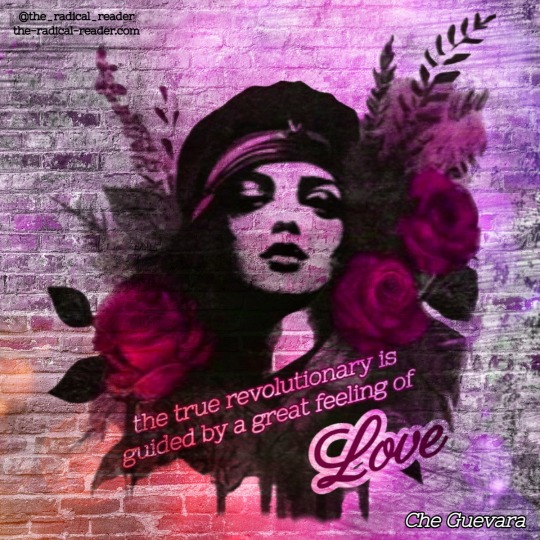
#che guevara#marxism#communism#socialism#revolution#revolutionary love#the radical reader#seize the theory#reading for liberation
3 notes
·
View notes
Text
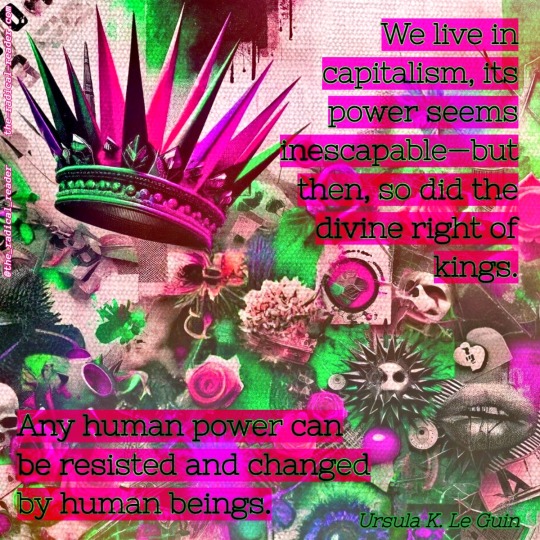
#ursula k le guin#anti capitalism#radical future#knowledge is power#reading for liberation#the radical reader#seize the theory
1 note
·
View note
Text
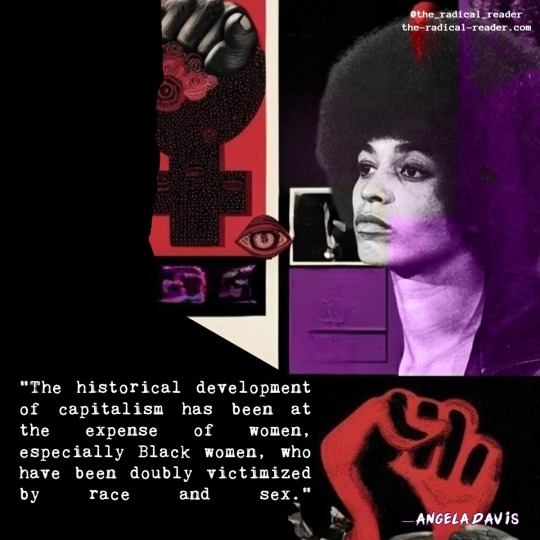
Women, Race, & Class | Angela Davis | 1981
#angela davis#women race & class#black feminism#black marxism#marxism#history#capitalism#anti capitalism#socialism#sexism#racism#misogynoir#the radical reader#seize the theory#knowledge is power#reading for liberation#communism
4 notes
·
View notes
Text
The Communist Manifesto by Karl Marx & Friedrich Engels
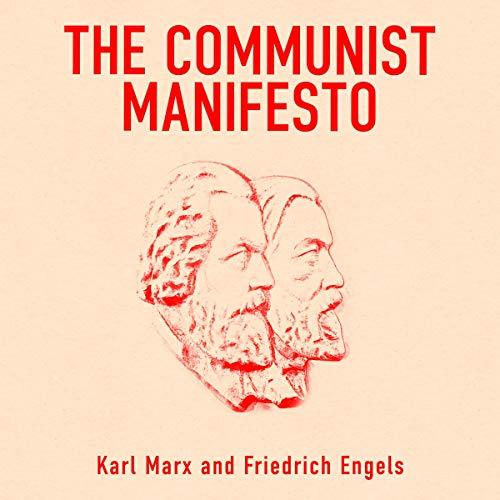
"The history of all hitherto existing society is the history of class struggles."
The Communist Manifesto (1848) is perhaps the most misrepresented and misunderstood text of the modern era. A pamphlet written and published by Karl Marx (1818 - 1883) and Friedrich Engels (1820 - 1895) in 1848, it distills their critique of capitalism and outlines the principles of communism. A foundational document in the history of political and social theory, economics, and communism, it famously opens with the assertion that all of human history has been the history of class struggles—a fight between the oppressor class (those with power) and oppressed class (those without power). In their era, the class struggle had simplified into a battle between the bourgeoisie (the capitalist class who own the means of economic production) and the proletariat (the working class who perform the labor that creates and drives economic production).
Marx and Engels argue that capitalism is inherently exploitative, leading to extreme wealth disparities and alienation of the working class. Especially groundbreaking was the Manifesto's clarity and its call for international solidarity among workers. Marx and Engels envision a society where the proletariat would overthrow the capitalist system, abolish private (not personal) property, and establish a classless, stateless society where the means of production are communally owned for the communal good and the collective thriving of all.
✨
Visit the-radical-reader.com to learn more about The Communist Manifesto—its historical context, its big ideas, common misunderstandings, how it's influenced history, and how it can inspire your action for collective liberation.
#karl marx#marxism#friedrich engels#communism#socialism#the communist manifesto#history#leftism#leftist theory#knowledge is power#the radical reader#seize the theory
0 notes
Text
Women, Race, & Class by Angela Y. Davis
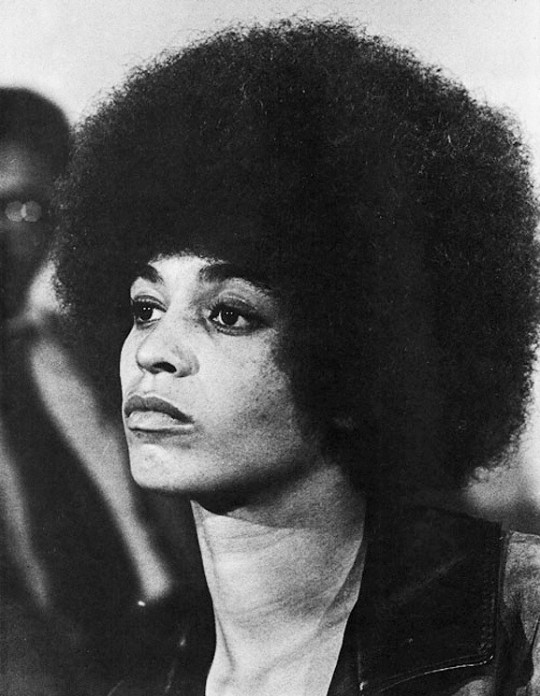
"The historical development of capitalism has been at the expense of women, especially Black women, who have been doubly victimized by race and sex.”
Published in 1981 by the esteemed Black American scholar and activist Angela Y. Davis (born 1944), Women, Race, & Class challenges us to confront the complexities of feminism through the lens of race and class, revealing how these interconnected identities shape identity, oppression, and resistance. Through Marxist historical analysis ranging from the abolitionist era to the feminist movements of the 20th century, Davis critiques the often singular focus on gender within feminism, advocating for a more inclusive movement that addresses the nuanced realities of all women, especially those marginalized by racism and socioeconomic exploitation.
Davis explores how gender is inextricably shaped by race and class—and, just as these identities intersect, so do the capitalist systems that marginalize and exploit along these axes of identity. Thus, the liberation of all women is bound up with the struggle against racial and economic injustice, and she calls for an inclusive and equitable feminism that centers the intersections of race and class. By weaving together the threads of race, class, and gender, Davis crafts a powerful narrative that challenges us to build cross-racial and cross-class alliances to dismantle capitalist exploitation and build a more just society. With its groundbreaking insights and incisive analysis, Women, Race, & Class continues to be a foundational text that is just as relevant today as it was four decades ago.
✨
Visit the-radical-reader.com to learn more about Women, Race, & Class—its historical context, its big ideas, common misunderstandings, how it’s influenced history, and how it can inspire your action for collective liberation.
#angela davis#angela y. davis#women race & class#black feminism#black marxism#socialism#history#white feminism#books#knowledge is power#reading for liberation#anti capitalism#the radical reader#black literature#seize the theory#marxism#communism
3 notes
·
View notes
Text
Orientalism by Edward W. Said
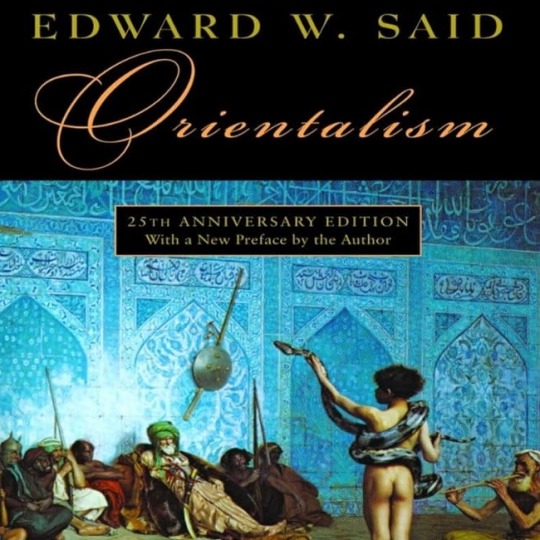
“Orientalism is not, therefore, an airy European fantasy about the Orient, but a created body of theory and practice in which, for many generations, there has been a considerable material investment.”
Published in 1978 by revered Palestinian–American scholar Edward W. Said (1935-2003), Orientalism is a landmark work that examines how the Western world has perceived and represented the East, specifically the Middle East, North Africa, and Asia. Said interrogates how the concept of “the Orient” emerges throughout history as a European (and then American) response to a perceived cultural and religious Other that is both threatening to and something to be dominated by the West. Through careful examination of European (neo)colonial texts, literature, and art, Said explores historical and modern power dynamics and cultural stereotypes that cast “the Orient” and “Orientals” as fundamentally different from and inferior to “the Occident” (the West) and “Occidentals.” A foundational text in postcolonial theory and cultural history, Orientalism is an intellectually rigorous analysis that dives deep into the complex iterations of a defining framework of Western ideology.
By illuminating how Orientalist ideology functions, Said encourages us to critically examine our assumptions and reject inaccurate, harmful narratives of “the other.” He challenges us to interrogate the very notions of “West” and “East,” and “us” and “them,” prompting us to imagine the possibilities of celebrating and respecting cultural differences without hostility, hierarchy, and domination. Given the urgent need for enhanced decolonial efforts in the face of rising neocolonialism and the need to vigorously combat harmful representations meant to divide the marginalized, Said's insights remain more important than ever.
✨
Visit the-radical-reader.com to learn more about Orientalism—its historical context, its big ideas, common misunderstandings, how it’s influenced history, and how it can inspire your action for collective liberation.
#edward w. said#edward said#orientalism#postcolonialism#postcolonial theory#leftism#leftist theory#the radical reader#knowledge is power#seize the theory#anti zionisim#free palestine
4 notes
·
View notes
Text
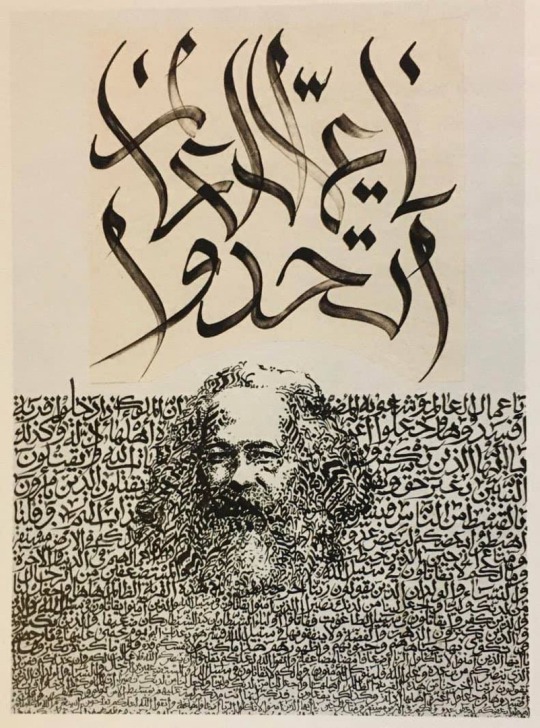
Arabic calligraphy of the Communist Manifesto + Karl Marx
By Hasan Musa
4K notes
·
View notes
Text
Black Panther Party member Kathleen Cleaver on non-violence. [source]
Non-violence is a very non-functional approach in a society that's based entirely on organized force and violence. A country that was created in violence, land was taken in violence, a society that's perpetuating itself through violence in the ghettos, in Vietnam, in Africa. Wherever you look, there is organized force and violence at work to maintain this society. There is a world of difference between 20 million unarmed people, and 20 milion people organized and armed to the gills. That's Power.
5K notes
·
View notes
Text

from the Lavender and Red Union, a group of communists who wrote this in 1975.
"GAY LIBERATION IS IMPOSSIBLE WITHOUT SOCIALIST REVOLUTION. SOCIALISM IS INCOMPLETE WITHOUT GAY LIBERATION."
16K notes
·
View notes
Text
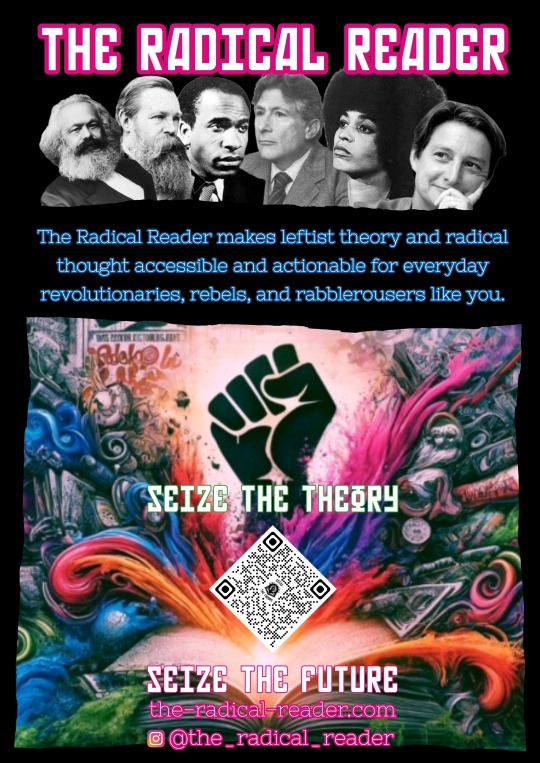
Hey, we get it—we’re experts in this stuff and we love it, but we’re the first to admit that despite its noble goals, leftist theory is often inaccessible and overwritten, overwhelming, and just damn confusing.
And, because late-stage capitalism has so completely commodified our lives, most folks simply don't have the time or energy to read dense academic texts in their precious "free time."
We believe that you shouldn't need a PhD to grasp ideas that inspire and ignite radical change. And you shouldn't have to go to grad school just to have the time to read revolutionary works.
That's why we're here. We're self-exiled academics who reject knowledge gatekeeping as much as we reject capitalism, and we seek to use our expertise to democratize leftist knowledge for radical liberation.
The Radical Reader's always-free Praxis Points synthesize and contextualize leftist texts from across history, countries, and disciplines. We make these texts understandable and usable for everyone committed to challenging systems of oppression and disrupting the status quo.
Written by experts for everyone, we cut through the density of leftist theory to give you a robust summary of the big ideas, why they matter, how they show up in the world, and how they can spark revolutionary action in your everyday life.
We're here to be your co-conspirators in our collective liberation struggle—arming you with the wisdom of radicals past and present, building bridges from thought to action, from theory to praxis, from pages to picket lines.
So whether you’re a curious newcomer feeling daunted by reading theory, a seasoned activist looking to build your leftist toolkit, or an advocate for change craving more depth than an Instagram post or a TikTok—welcome, comrade.
The Radical Reader is for you.
#the radical reader#leftist theory#theory to praxis#leftism#communism#karl marx#angela davis#edward said#books#anti capitalism#knowledge is power#reading for liberation#activism#history#FUCK TERFS
1 note
·
View note